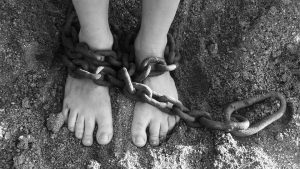Domestic Crimes
Domestic crime is defined as violence, abuse, or willful neglect that occurs between two parties who are related to each other or who share an intimate relationship. Domestic crime can be perpetrated by a child, parent, grandparent, other family members, spouse, former spouse, dating partner, former dating partner, household member, caretaker, and the like. Domestic violence used to be regarded as a private matter which was not often handled through the criminal justice system. The devastating effects of domestic violence, the de-stigmatization of interceding on behalf of a victim, and other factors have prompted each state to enact much harsher laws on domestic crime.

Domestic violence criminal offenses are numerous. The following crimes are just some of the offences that can be considered domestic violence:
- murder
- negligent homicide
- justifiable homicide
- kidnapping
- sexual assault
- rape
- robbery
- assault
- battery
- child abuse
- property destruction
- harassment
- reckless endangerment
- stalking
Most states also consider it a crime to interfere with the reporting of domestic crime. States also have laws which require domestic violence aggressors to be arrested after an incident. In cases where no arrest is made, a police officer is still required to file a domestic violence report.

Individuals that have been charged with a domestic crime have the right to professional legal services. If the person cannot afford to retain these services, legal counsel must be provided. The penalty for domestic crime will depend on the specific case. Domestic violence is punishable by prison or jail time, fines, community service, probation, and compulsory domestic violence treatment programs. Those who are convicted of domestic crime are prohibited from possessing a firearm. Offenders who have previous domestic violence convictions will face much harsher penalties. If you would like to learn more about domestic crime, please contact an experienced and highly qualified attorney in your area.





